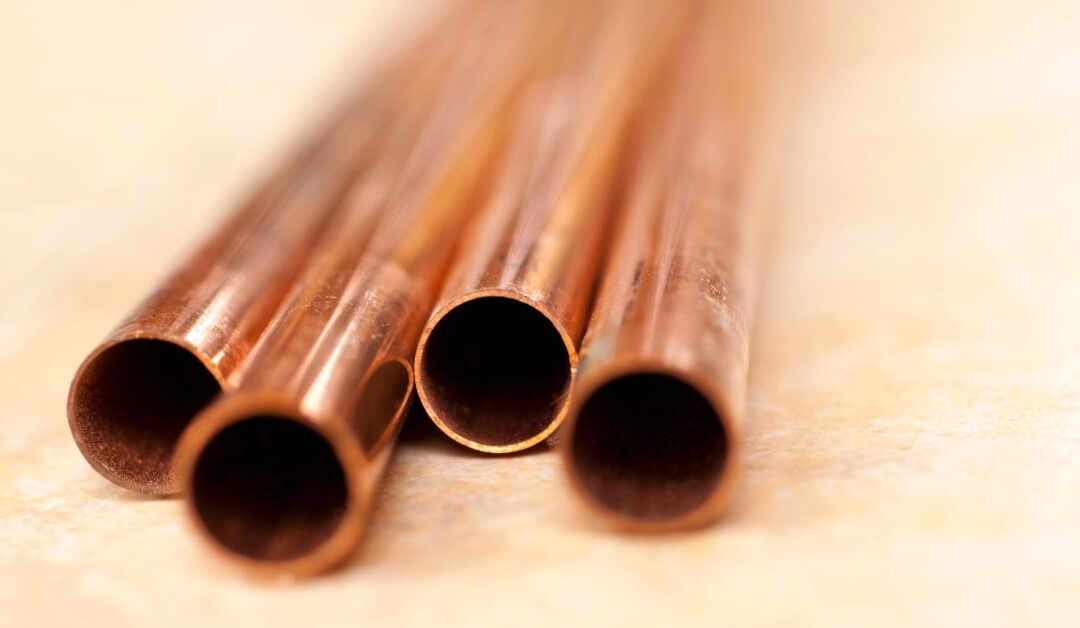Today we discuss “Choosing the Right Plumbing Pipes: Pros and Cons of Each Type” When it comes to plumbing, the type of pipes used in your home or business can make a big difference in performance, durability, and cost. Whether you’re dealing with a new installation or a repair, understanding your options can help you make the best decision. At Ocean View Plumbing & Rooter, we’ve worked with all kinds of plumbing materials and know which ones work best for different situations. In this guide, we’ll break down the most common types of plumbing pipes, their advantages, and their drawbacks.
1. Copper Pipes
Pros
- Long-lasting and highly durable
- Resistant to corrosion
- Can handle high water pressure
- Doesn’t contaminate drinking water
Cons
- Expensive compared to other options
- Requires professional installation due to soldering
- Susceptible to freezing and bursting in extreme cold
Copper pipes have been used for decades and are a solid choice for both residential and commercial plumbing. If you’re looking for a reliable solution that will last, copper is an excellent option.
2. PEX Pipes (Cross-linked Polyethylene)
Pros
- Affordable and flexible, making installation easier
- Resistant to scale buildup and corrosion
- Great for retrofits and remodels
- Handles hot and cold water well
Cons
- Can’t be used outdoors (UV light degrades it)
- May not be as long-lasting as copper
- Some brands use fittings that can fail over time
PEX pipes are growing in popularity because of their ease of use and affordability. If you’re working with a plumber in Camarillo, CA, to upgrade your plumbing system, PEX is often a great choice for cost-effective and efficient installations.
3. PVC Pipes (Polyvinyl Chloride)
Pros
- Inexpensive and lightweight
- Resistant to rust and corrosion
- Ideal for drainage and vent systems
Cons
- Not suitable for hot water lines
- Can crack under extreme pressure
- Some local building codes limit its use in residential plumbing
PVC pipes are great for drainage but aren’t recommended for carrying hot water. They’re commonly used in outdoor plumbing or for wastewater management. If you need an alternative for hot water, CPVC might be a better choice.
4. CPVC Pipes (Chlorinated Polyvinyl Chloride)
Pros
- Can handle higher temperatures than regular PVC
- Resistant to corrosion and chemicals
- More affordable than copper
Cons
- Can become brittle over time
- More expensive than standard PVC
- Requires special solvents for installation
CPVC is a step up from PVC for handling hot water, making it a good option for home water supply lines. Many plumbing companies in Oxnard recommend CPVC as a cost-effective alternative to copper.
5. Galvanized Steel Pipes
Pros
- Extremely strong and durable
- Once a standard choice for residential plumbing
- Can last for decades if properly maintained
Cons
- Prone to rust and corrosion over time
- Heavy and difficult to install
- Can cause reduced water pressure due to buildup
Galvanized pipes were once widely used but are now being replaced with more modern materials. If your home still has galvanized piping, it may be time for an upgrade to prevent leaks and improve water flow.
Which Pipe is Best for Your Home?
We hope we gave you some good info on Choosing the Right Plumbing Pipes: Pros & Cons of Each Type. It does depend on several factors, including budget, durability, and intended use. If you’re not sure which material is best, a professional plumber in Ventura county can assess your plumbing needs and recommend the best solution for your home or business.
At Ocean View Plumbing & Rooter, we help homeowners and businesses make informed plumbing decisions. Whether you need a full repiping service or a small repair, we’re here to provide top-quality service and expert advice. Contact us today to discuss your plumbing needs!
